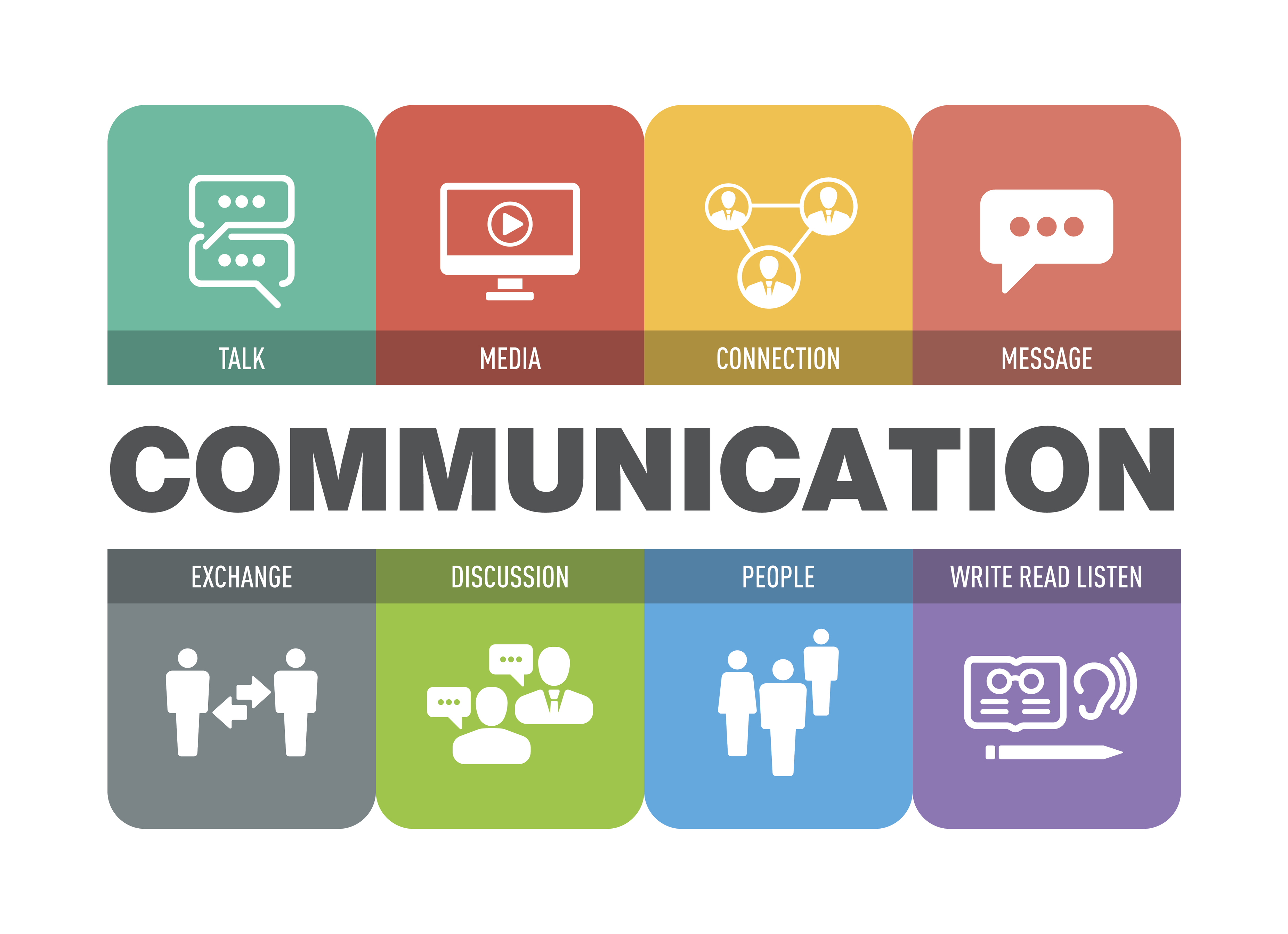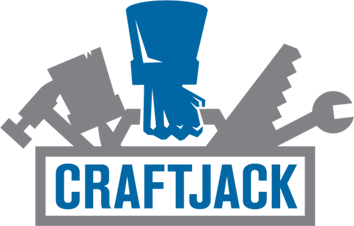Communication Skills For Your Regional Business
Discover the most important communication skills for regional businesses and how employee communication with customers and managers can affect your company's brand.

When it comes to running a regional business, strong communication skills are a must. Word of mouth is one of your most powerful marketing tools, and satisfied customers can help your home service business grow. Investing in employee training to help your team communicate more effectively with customers and each other can be just as valuable as any industry-specific skills you build.
From employee management tips to the latest contractor marketing advice, we're here to help your regional business grow. Sign up for our weekly newsletter for more.
Why Consistent Communication Is Essential
Multinational brands have an army of experts behind them in the form of PR and marketing teams, all working tirelessly to help the brand put forward a consistent image. Even with those experts, sometimes big brands make mistakes, but they have larger audiences, and larger budgets, to help them recover.
Companies that serve a smaller region don't have that luxury. If you're a contractor who serves a small, close-knit community, it's particularly important to be aware of the interests and preferences of the demographic you serve. Some factors to consider include:
- Regional language/dialect differences
- Traditions
- Culture/history
- Brand preferences
- Expectations
Some of the above points may seem obvious, such as observing important religious or cultural holidays in the area you serve. Others may be more subtle, such as a town or city boycotting a specific product because of a local incident that nonresidents may not be aware of or brands scheduling their marketing around seasonal events specific to that region.
As a home service contractor, it's wise to learn as much as you can about the regions you operate in and the preferences of those residents. Do men or women tend to drive purchasing decisions, or are they made jointly? Are certain colors particularly popular for children's bedrooms because they match a local sports team? The more you know about your audience, the better you can serve them.
Communication Training For Employees
Local knowledge is a powerful tool, but only if your employees put the knowledge to good use. If your employee training covers only the technical side of the trade, you're doing your team (and brand) a disservice. Good employee communication skills are one way to differentiate your business from other home service businesses in the area.
Your contractors may well be highly skilled individuals who are well-versed in the best practices, latest tools, health and safety regulations, and other factors that go into the job they do. However, your customers won't remember just whether their plumbing was properly repaired or the landscape garden looked good when it was finished; they'll remember the overall experience they had with the contractor, such as:
- Whether your team responded to emails quickly
- Whether they showed up on time when offering a quote
- How you handled questions or special requests
- Whether the project was completed on time
- How delays or unexpected expenses were managed
- How contractors behaved on site
As a business owner, you may be the face of your brand, and the people who answer the phone or deal with your emails are important, too. However, everyone who comes into contact with a customer is a representative of the company and should have the communication skills required to present the company in a professional light.
Building A Social Media Policy
Social media use is near-ubiquitous today, with recent estimates projecting that 72% of Americans use at least one social media platform. It's easy for people to forget that things they share on social media can be saved and shared by others.
A flippant joke or a rant posted on a bad day could have consequences for people many years later. Creating a social media policy should be a priority for any business. This policy can cover how your business uses social media for marketing and what sort of content might be posted by branded accounts. For example, some businesses choose to post only industry-related content and avoid political issues, while others are happy to take a stance on certain issues, potentially increasing loyalty among some customers but losing others.
The social media policy may also cover your contractors' personal accounts. For example, you may have guidelines about what people can post online, including:
- Hate speech
- Other potentially illegal content
- Company information
- Photographs from customer job sites
- Comments about work
Most of the things in your social media policy could be described as common sense. Sharing photos of customers' homes without their permission or ranting about a customer is not something professionals would do. However, from an employee management perspective, it's useful to have these guidelines written down so you're in a better position to take action should a contractor working for you violate them.

Customer Service Skills Matter
Whether you're personally carrying out work at customer job sites or just overseeing the broader operational parts of the business, you'll need good communication skills. Some skills that are often overlooked but can make a big difference include:
Empathy
Depending on the services you provide, you may have a lot of customers calling you with a problem they need to have solved. Their kitchen has flooded, their toilet is broken, or they were left in the lurch by a previous contractor and now need someone to get their spare bedroom looking good before family comes to visit.
To you, they're just another job. To them, this job is very important. If you take a moment to empathize with them rather than simply "taking a booking," this can help you build a rapport and will also make them view you in a more positive light.
Managing Expectations
Understandably, your customers want their issues fixed as quickly as possible, but sometimes that can't be done. If you're a plumber, you may aim to solve most issues on the first callout, but sometimes you won't have the correct parts or the job will require more invasive work than you were led to believe when the customer called.
Managing expectations from the start of the interaction with the customer helps reduce frustration. Clear communication is the key to managing expectations. Some customers have a habit of forming unreasonable expectations that aren't based on any clear statement made by you or your team.
If you're the first point of contact for most customers, make it clear what they can expect from the first callout and, when a contractor does visit them, have them make an effort to communicate their findings and explain exactly what will happen next.
For example, if you're visiting to inspect a broken heating system, you'll aim to fix it in the initial visit. If you can't do that, you'll order the required parts. You expect the order to take three days to arrive, and you'll update them on the third day. You understand having a broken heating system is an issue, and you'll have someone drop off an electric heater to help the homeowner stay warm while they wait.
This approach helps the customer understand why their heater hasn't been fixed immediately, what's going to happen next, and how long they'll have to wait. It also shows you understand why the heating system being broken is a problem and that you care enough to help them fix it.
Patience
In any industry where people have to deal directly with customers, there'll be frustrations. Homeowners work with home service contractors because they lack the time and/or skills to do the job themselves. Sometimes you'll run into customers who think your job is easier than it is. Their lack of knowledge of the industry may lead to them making unreasonable requests.
Exercise patience and remember most customers are well-meaning. While there may be some who are simply trying to save as much money as possible, or who truly are unpleasant to deal with, the majority are just unaware of the complexities of the job at hand.
Try to be patient with these customers. If you find yourself fielding lots of questions from customers about zoning rules or why you need to perform certain tests, consider preparing a leaflet that answers those questions. In the long run, this will save you a lot of time, and it'll make your business appear more professional, too.
Flexibility
When you're working on bigger jobs, it's inevitable you'll run into the occasional problem. Perhaps certain parts aren't available from your supplier, or you start stripping down a bathroom and encounter unsafe electrical wiring.
Being able to respond to these issues calmly is one of the hallmarks of a true professional. Not only do you need to be able to come up with a good way of addressing the issue, you'll also need to communicate the change of plan to the contractors. Additionally, you'll need to explain the issue to the customer so they understand why the job is delayed, what needs to be done next, and how the changes might affect the budget and the deadline of the project.
The Importance of Employer & Employee Communication
How you communicate with your employees is important, because it sets the tone for how your employees will communicate with your customers. If you're professional, clear and concise in your communications, they'll be more likely to mirror that in the way they deal with clients themselves.
A good example of employer and employee communication is how you communicate when it comes to bookings or queries. Are you firing off short, typo-ridden text messages, or do you take the time to type clear emails?
If you've received a complaint from a customer and you feel the customer is being difficult, how do you refer to the customer in communications with the contractor? If you as the employer allow your irritation to show or speak negatively about the customer, a contractor may pick up on that attitude, and it could be reflected in the customer service they provide.
If you run a growing regional business, you may have a top-down style of employee communication, and this can be effective as long as it's well-structured. As businesses grow, it's common for employees to feel they're left in the dark about certain issues or changes within the organization. By making an effort to have a formal employee communication strategy that includes a way to share information and receive feedback from your team, you'll improve morale and reduce confusion or miscommunications during any challenging periods for the business.
Customer Service Can Differentiate Your Business
As consumers become increasingly price-conscious, having good communication skills is one way you can differentiate your business from your competitors. Good employee communication could be the thing that drives your satisfied customers to recommend you to their friends and family. Craftjack's communication and marketing tools can help you present a positive image to your prospective clients.


